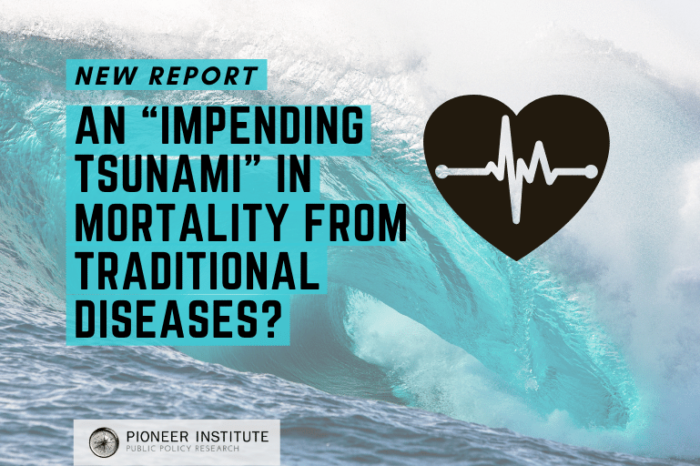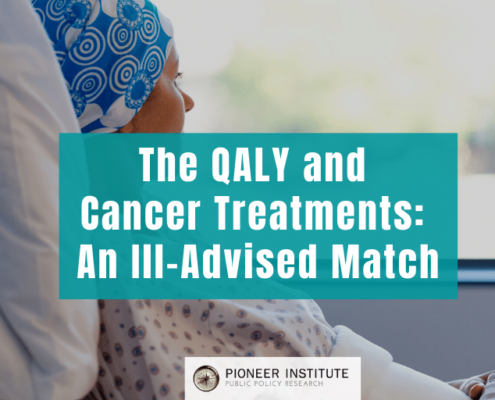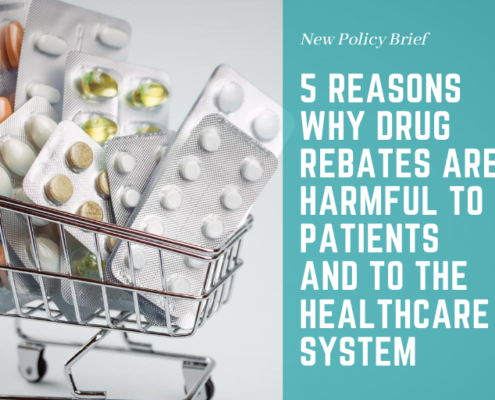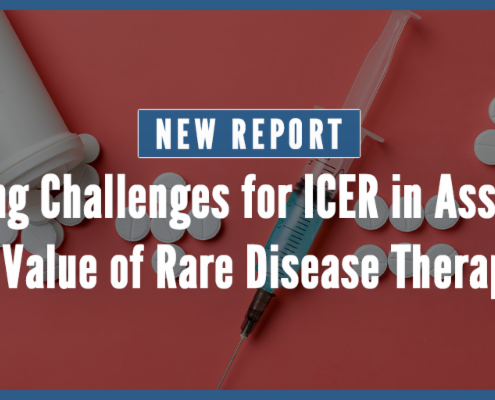Study: Decline in Cardiovascular Health Screenings During COVID-19 Pandemic Poses New Public Health Threat
Public Health Officials Must Refocus Efforts on Preventive Care & Screenings for Deadliest Threats Among Vulnerable Communities
Media inquiries: Contact Micaela Dawson, 617-723-2277 ext. 203 or mdawson@pioneerinstitute.org
BOSTON – Pioneer Institute today released a new analysis focused on cardiovascular disease, An “Impending Tsunami” in Mortality from Traditional Diseases?, that examines how the COVID-19 pandemic has created another unrelated public health crisis. The Pioneer analysis examines how a single-minded public health focus on COVID-19, social distancing, and lockdowns drove reductions in screenings, diagnoses, and early treatment for complex conditions such as heart disease. In the study, author and Pioneer Institute Visiting Fellow in Life Sciences Dr. William Smith concludes that public health authorities, policymakers, and the media should turn their focus from COVID-19 to efforts to address and prevent more serious public health challenges looming on the horizon.
“There have been regular admonitions to practice social distancing and wear a mask during the pandemic to protect our health and the health of those we know,” said William Smith, author of An ‘Impending Tsunami’ in Mortality from Traditional Diseases. “But during that time, public health officials have ignored the need to make repeated calls to at-risk populations to visit the doctor and get important health screenings. In the absence of these important prevention efforts, we are on the brink of a public health challenge, worsening patient outcomes, and additional healthcare costs.”
In the new analysis, Pioneer finds that:
- There were over 375,000 deaths from COVID-19 in 2020, compared to 691,000 from heart disease and more than 600,000 from cancer. For both of these preventable and treatable diseases, earlier treatment leads to better patient outcomes.
- Compared to 2018 and 2019, primary care visits were down 21.4 percent during the second quarter of 2020, despite a surge in telemedicine, which accounted for 2 percent of visits in 2019, but 35 percent from April through June of 2020. The problem is even more severe among African-American, Asian and Hispanic patients, who are more likely to meet with their primary care physician remotely.
- Cholesterol screenings were down more than 35 percent during the pandemic. According to the Journal of the American Medical Association (JAMA), there was a 9.1 percent drop in prescriptions filled for Atorvastatin, the leading cholesterol drug that is the most dispensed drug in the U.S., which translates to nearly 11 million prescriptions for the drug being dispensed.
Dr. Smith makes several recommendations to address this dangerous lack of preventive and early care, including:
- A public health campaign about the dangers of not getting screened for the leading causes of death in the U.S. and the urgency for people to see their physician. The campaign should have its highest visibility in communities of color as African-Americans have the highest death rates for heart disease and cancer, and communities of color also have far lower diagnosis rates for cardiovascular and other diseases.
- Public officials should borrow tactics used to distribute free COVID-19 vaccines by offering free diagnostic tests at large venues.
- Policy makers should reduce or eliminate access restrictions to vaccines, therapeutics and prescriptions. Policy makers and health plans should consider waiving co-pays and co-insurance on therapies for the two leading causes of death for a year.
- The U.S. Preventive Services Task Force (USPSTF) should submit recommendations on how to mitigate public health damage that may have occurred from the precipitous drop in health screenings.
About the Author
William S. Smith is Visiting Fellow in Life Sciences at Pioneer Institute. He has 25 years of experience in government and in corporate roles, including as vice president of public affairs and policy at Pfizer, and as a consultant to major pharmaceutical, biotechnology and medical device companies. He held senior staff positions for the Republican House leadership on Capitol Hill, the White House, and in the Massachusetts Governor’s office. He is affiliated as research fellow and managing director with the Center for the Study of Statesmanship at The Catholic University of America (CUA), where he earned his PhD.
About Pioneer Institute
Pioneer’s mission is to develop and communicate dynamic ideas that advance prosperity and a vibrant civic life in Massachusetts and beyond. Pioneer’s vision of success is a state and nation where our people can prosper and our society thrive because we enjoy world-class options in education, healthcare, transportation and economic opportunity, and where our government is limited, accountable and transparent. Pioneer values an America where our citizenry is well-educated and willing to test our beliefs based on facts and the free exchange of ideas, and committed to liberty, personal responsibility, and free enterprise.
Get Updates On Our Life Sciences Work!
Related Content:













